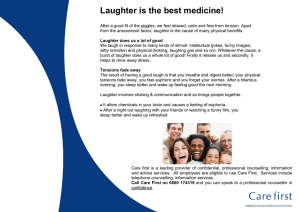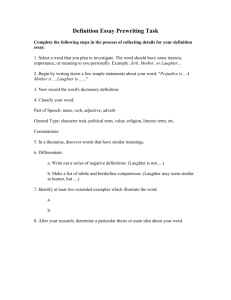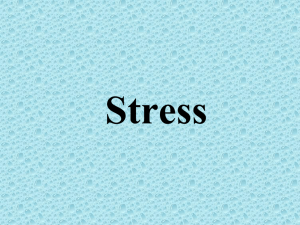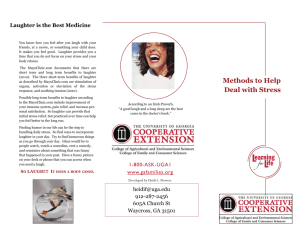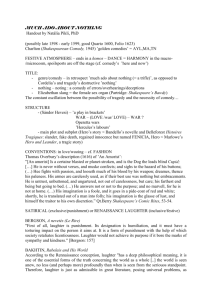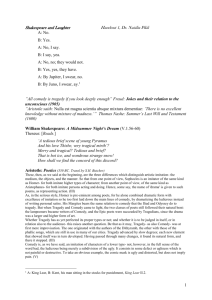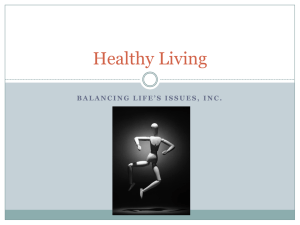Scientists laugh in the face of sickness
advertisement
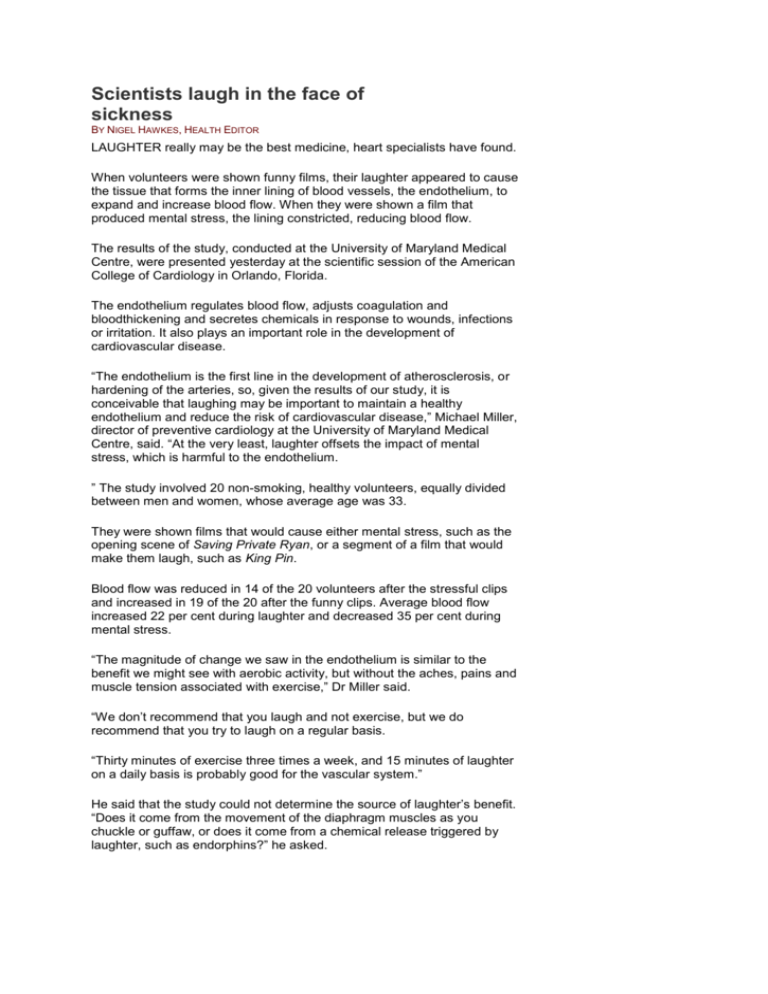
Scientists laugh in the face of sickness BY NIGEL HAWKES, HEALTH EDITOR LAUGHTER really may be the best medicine, heart specialists have found. When volunteers were shown funny films, their laughter appeared to cause the tissue that forms the inner lining of blood vessels, the endothelium, to expand and increase blood flow. When they were shown a film that produced mental stress, the lining constricted, reducing blood flow. The results of the study, conducted at the University of Maryland Medical Centre, were presented yesterday at the scientific session of the American College of Cardiology in Orlando, Florida. The endothelium regulates blood flow, adjusts coagulation and bloodthickening and secretes chemicals in response to wounds, infections or irritation. It also plays an important role in the development of cardiovascular disease. “The endothelium is the first line in the development of atherosclerosis, or hardening of the arteries, so, given the results of our study, it is conceivable that laughing may be important to maintain a healthy endothelium and reduce the risk of cardiovascular disease,” Michael Miller, director of preventive cardiology at the University of Maryland Medical Centre, said. “At the very least, laughter offsets the impact of mental stress, which is harmful to the endothelium. ” The study involved 20 non-smoking, healthy volunteers, equally divided between men and women, whose average age was 33. They were shown films that would cause either mental stress, such as the opening scene of Saving Private Ryan, or a segment of a film that would make them laugh, such as King Pin. Blood flow was reduced in 14 of the 20 volunteers after the stressful clips and increased in 19 of the 20 after the funny clips. Average blood flow increased 22 per cent during laughter and decreased 35 per cent during mental stress. “The magnitude of change we saw in the endothelium is similar to the benefit we might see with aerobic activity, but without the aches, pains and muscle tension associated with exercise,” Dr Miller said. “We don’t recommend that you laugh and not exercise, but we do recommend that you try to laugh on a regular basis. “Thirty minutes of exercise three times a week, and 15 minutes of laughter on a daily basis is probably good for the vascular system.” He said that the study could not determine the source of laughter’s benefit. “Does it come from the movement of the diaphragm muscles as you chuckle or guffaw, or does it come from a chemical release triggered by laughter, such as endorphins?” he asked.
